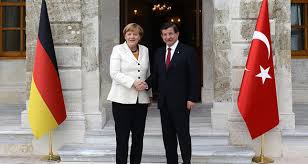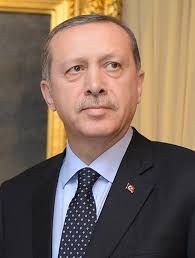
(Ankara) Europe launched aunched a push at the fourth EU summit this year on the refugee crisis to obtain Turkey’s co-operation in stemming the flow of hundreds of thousands of refugees and migrants, while also agreeing a package of repressive measures aimed at securing the union’s porous external border and curbing new arrivals. Asupport the ngela Merkel went to Turkey to support the Turkish government during the refugee Crisis, reports Nordic News.
Series of Bomb Attacks
The recent series of bomb attacks in Turkey that culminated in the devastating twin bombings in Ankara that claimed nearly 100 lives at a peace rally there have shaken the notion that Turkey was an island of relative stability amid a sea of unrest and conflict. This trend towards more internal unrest in Turkey holds the potential to dramatically increase the level of political risk within this strategically located country that is pivotal to the volatile eastern Mediterranean region. Moreover, this unrest has the potential to lead to increasing levels of authoritarianism and repression inside Turkey as the threat of unrest gives the government the opportunity to crack down on its perceived opponents. Given the fact that the regions surrounding Turkey are already the scene of some of the world’s worst conflicts in recent years, a descent into instability in Turkey could well have devastating consequences for Europe and the Middle East. The questions are raised by ISA (International Strategic Analysis
External Threats
The leading threats to Turkey’s political stability continue to be found all around Turkey’s borders. To the north of Turkey, Russia’s intervention in Ukraine and its annexation of Crimea have resulted in Russia gaining a much stronger foothold in the Black Sea region, potentially threatening Turkey’s interests there. To the east, the Caucasus remains one of the world’s most unstable regions, with Islamist extremists gaining support in the north Caucasus and with the threat of a war between Armenia and Azerbaijan potentially drawing Turkey into a conflict in the southern Caucasus. To the west, Greece’s economic meltdown and Europe’s migration crisis also hold the potential to destabilize Turkey, particularly as hundreds of thousands of Syrian, Iraqi and other refugees travel through Turkey on their way to Europe.
Internal Divisions
While each of these threats would be enough to destabilize any country, it is the unrest to the south of Turkey that poses the most serious threat to Turkish stability. With Ankara committed to the ousting of the Assad regime in Syria and with the radical Islamic State militant group controlling much of that country and neighboring Iraq, a multiple-front war is underway all along Syria’s southern border, with Turkey struggling to come to grips with the rapidly evolving conflict that has already drawn in the United States, Russia and a host of other countries. Moreover, while Turkey is keen to see Assad ousted and fears the implications of the Islamic State presence to its south, he AKP-led government has focused its efforts in the south on Kurdish rebels based in northern Syria and Iraq. This has led to accusations that Ankara is supporting the Islamic State by hammering away at the one ground force that has had success against the IS, the Kurdish militias. Even as Turkey is now allowing the United States to use its Incirlik air base in southern Turkey
against Islamic State targets, these accusations continue to be heard in many capitals in the region.
The AKP’s Power Grab
While these external threats to Turkey’s stability have been in place for some time now, it is the deterioration of the political situation inside Turkey that is raising fears over the future direction of the country. While the deep divisions between Turks and Kurds have been a feature of Turkish political life for decades, a number of other significant divisions within Turkey hold the threat to raise risk levels in the coming months. For example, the long-standing divisions between secular and religious groups in Turkey have widened in recent years as President Recep Tayyip Erdogan’s Justice and Development Party (AKP) has championed many religion-driven policies in recent years. Moreover, the AKP has moved in a more nationalist direction in recent months after it failed to achieve a clear victory in this past summer’s parliamentary elections, leading to a failure to form a new government and new elections being scheduled for next month. As these divisions over religion, ethnicity and nationalism grow more entrenched; the potential for higher levels of internal unrest in Turkey will continue to grow, reports Nordic News from Ankara..
A Violent Election Season
Next month’s parliamentary elections in Turkey are a potential flashpoint that could
dramatically increase the country’s political risk levels. With the AKP blaming
the pro-Kurdish HDP party for its failure to win a decisive victory in June 2015’s
elections, the AKP has moved to take a hard line towards Kurdish rebels in a bid
to gain more of the nationalist vote next month. This has led to a major increase
in violence between the supporters of these two parties. Meanwhile, the situation
outside of Turkey’s borders appears likely to worsen, particularly in Syria, where
Russia’s robust intervention in support of the Assad regime could lead to major
changes on the ground in northern Syria to the detriment of Turkey’s position there.
Should Syria collapse entirely, or should either the Assad regime of the Islamic
State emerge completely victorious in Syria, then Turkey’s stability will be severely
threatened. As such, Turkey is facing its most significant crisis since the foundation
of modern Turkey 92 years ago and this is a crisis that could lead to a major
destabilization
of Turkey itself.




